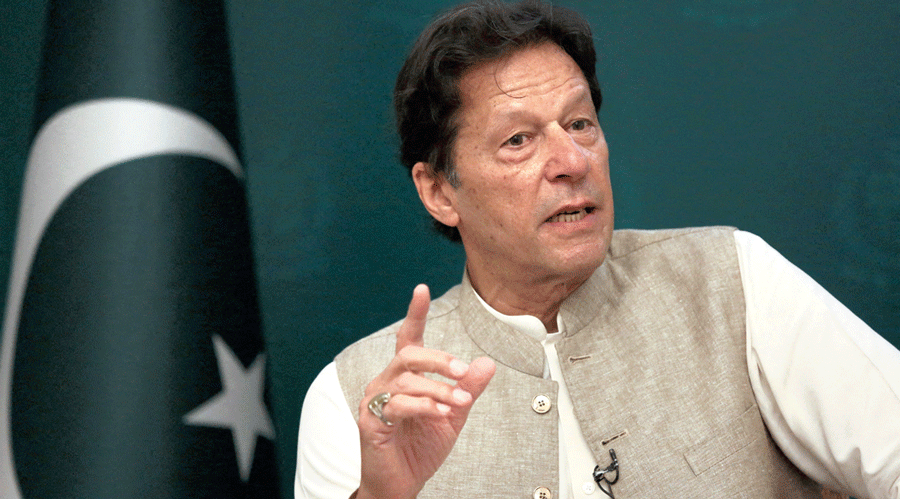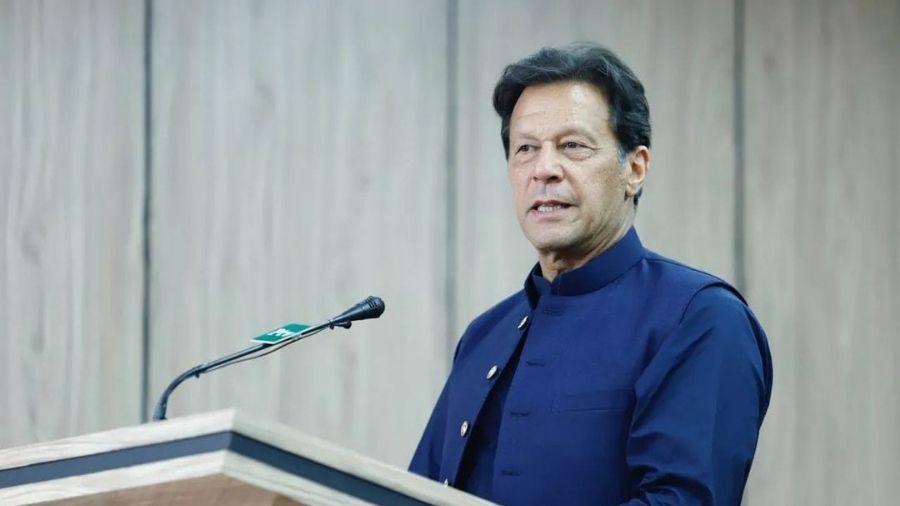The Pakistan Tehreek-e-Insaf party led by former prime minister Imran Khan on Monday emerged as the main beneficiary in the key bye-elections held in the 11 constituencies of Pakistan's national and provincial assemblies.
The main contest was between Prime Minister Shehbaz Sharif's Pakistan Muslim League-Nawaz (PML-N)) and Khan's Pakistan Tehreek-e-Insaf (PTI). The outcome of polling is expected to capture the mood of the masses ahead of general elections next year.
Eight seats of the National Assembly (NA) and three of the Punjab provincial assembly fell vacant after the PTI lawmakers resigned following the toppling of Khan's government in April.
A total of 101 candidates from different political parties and independents took part in the vote: 52 in Punjab, 33 in Sindh and 16 in Khyber-Pakhtunkhwa.
Khan himself contested seven NA seats and won six while he was defeated by a candidate of the Pakistan Peoples Party (PPP) on a seat in Karachi. His party lost another seat in Multan where the PTI supported Mehr Bano Qureshi.
Mehr is the daughter of former foreign minister Shah Mahmood Qureshi and was trounced by Ali Musa Gilani, son of former premier Yusuf Raza Gilani. Gilani contested on the ticket of Pakistan Peoples Party (PPP), which emerged as the second main beneficiary of the Sunday polls.
The Multan contest was keenly watched as it showcased the influential Gilani and Qureshi families of the city fighting for a key seat.
Apart from winning six NA seats, the PTI also won two Punjab assembly seats to further strengthen the position of its supported chief minister Chaudhry Pervez Elahi.
PTI Secretary General Asad Umar said that the results of the election was another chance for the decision makers to realise their mistake and take Pakistan towards a new election.
The ruling Pakistan Muslim League Nawaz got just one provincial assembly seat to become the main loser of the day, which was seen by many as the litmus test for parties ahead of next year's general elections.
Apparently, the PML-N led by Prime Minister Shehbaz Sharif is paying the price of failing to control the raging inflation but PTI has also suffered as it lost three seats out of 11 that its lawmakers had vacated.
It is said that PTI's reversal of fortunes would have been even more drastic had Khan not opted to contest on seven seats. It not only faces a threat of revival of PML-N in Punjab but also that of a resurgent PPP in Karachi.
The Awami National Party (ANP) controlled by Bacha Khan's descendants also fared better in Khyber-Pakhtunkhwa and reduced the margins of Khan's victory. The province is controlled by PTI and the revival of ANP may pose a threat to Khan in general elections.
Khan will use his victory to press for early elections, which had been his main demand since his removal from office, but he may not succeed to get snap polls as the coalition government is still strong enough to resist the pressure.
Around 4.472 million voters are registered in these constituencies. In Punjab, 1,434 polling stations have been established, 979 in Khyber Pakhtunkhwa, and 340 in Sindh.
There were sporadic incidents of violence at various places but overall the polling process remained smooth and peaceful.
Strict security measures were taken by the authorities to maintain peace and apart from police and paramilitary Rangers and Frontier Corps, regular troops were also deployed at sensitive polling stations.
Since his removal from office through a no-confidence vote, Khan has been campaigning for snap polls and regularly holding rallies. It helped him to win 15 out of 20 seats of the Punjab assembly in July when by-elections were held.












